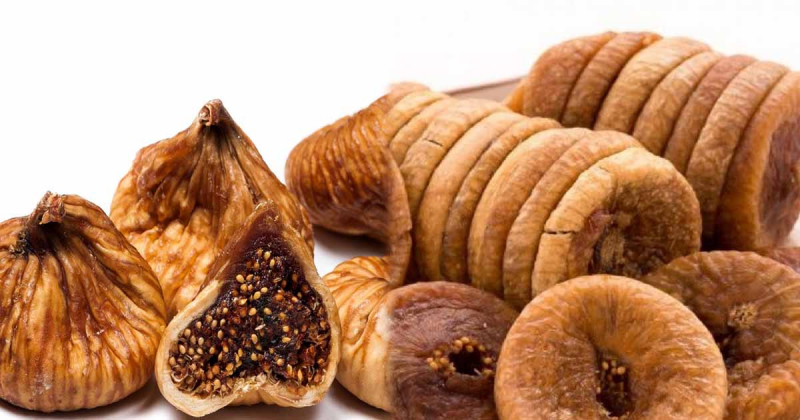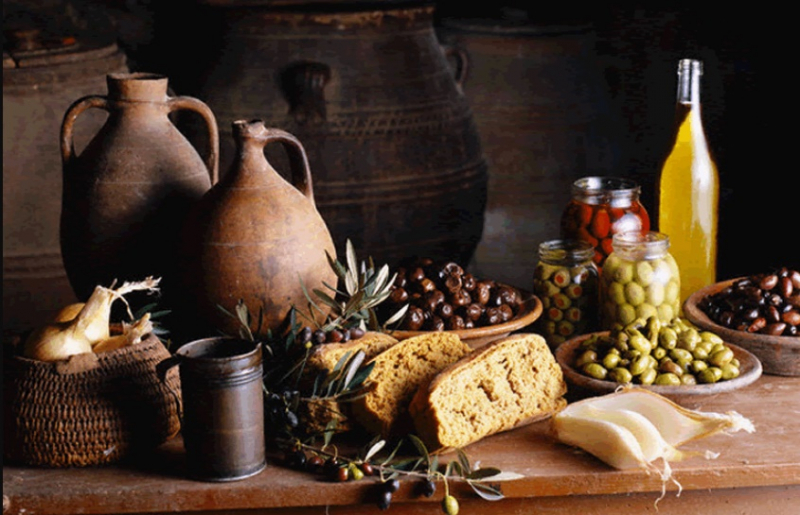Fruit and vegetables
Fruit and vegetables were an important part of the ancient Greek diet because they consumed far less meat than the normal diet of modern nations. Legumes would have been important crops because their ability to repair depleted soil was known at least by Xenophon's time. Hesiod (7th-8th century BCE) describes various ancient Greek crops, including artichokes and peas.
Vegetables were consumed in soups, boiled or mashed ((ἔτνoς etnos), and seasoned with olive oil, vinegar, herbs, or gáronγάρον gáron, a fish sauce akin to Vietnamese fish sauce. Heracles was represented as a glutton with a penchant for mashed beans in Aristophanes' comedies. Poor families consumed oak acorns (βάλανοι balanoi). Olives, either raw or preserved, were a popular starter.
Fresh vegetables were expensive in the cities, therefore the poorer city people had to make do with dried veggies. The workman's favorite dish was lentil soup (φακῆ phakē). Soldiers' common foods were cheese, garlic, and onions. Dessert consisted of fresh or dried fruits and nuts. Figs, raisins, and pomegranates were notable fruits. Athenaeus recounts a dish consisting of figs and broad beans in his Deipnosophistae. Dried figs were also served as an appetizer or with wine. They were frequently served with grilled chestnuts, chickpeas, and beechnuts in the latter case.












